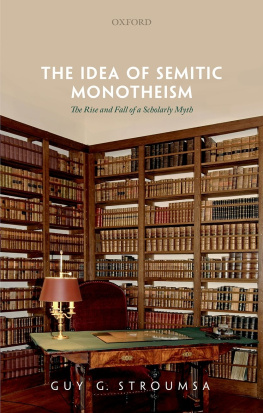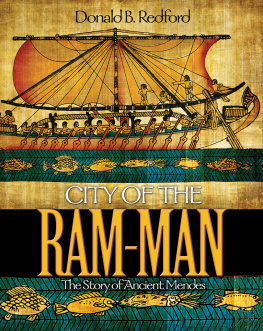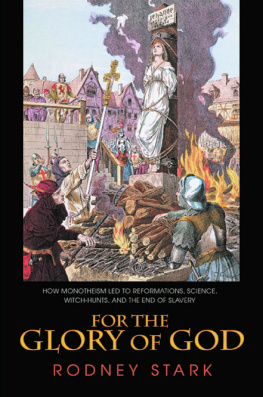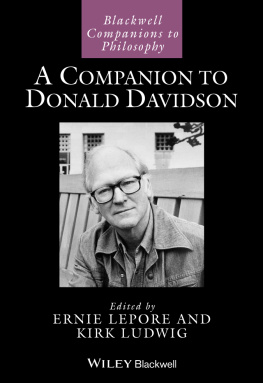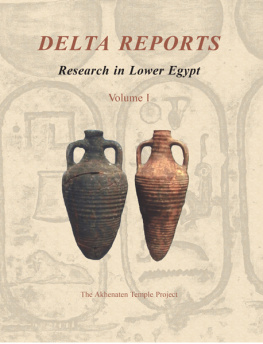Redford Donald B. - Aspects of Monotheism
Here you can read online Redford Donald B. - Aspects of Monotheism full text of the book (entire story) in english for free. Download pdf and epub, get meaning, cover and reviews about this ebook. year: 2013, publisher: Biblical Archaeology Society, genre: Religion. Description of the work, (preface) as well as reviews are available. Best literature library LitArk.com created for fans of good reading and offers a wide selection of genres:
Romance novel
Science fiction
Adventure
Detective
Science
History
Home and family
Prose
Art
Politics
Computer
Non-fiction
Religion
Business
Children
Humor
Choose a favorite category and find really read worthwhile books. Enjoy immersion in the world of imagination, feel the emotions of the characters or learn something new for yourself, make an fascinating discovery.

- Book:Aspects of Monotheism
- Author:
- Publisher:Biblical Archaeology Society
- Genre:
- Year:2013
- Rating:5 / 5
- Favourites:Add to favourites
- Your mark:
- 100
- 1
- 2
- 3
- 4
- 5
Aspects of Monotheism: summary, description and annotation
We offer to read an annotation, description, summary or preface (depends on what the author of the book "Aspects of Monotheism" wrote himself). If you haven't found the necessary information about the book — write in the comments, we will try to find it.
Aspects of Monotheism — read online for free the complete book (whole text) full work
Below is the text of the book, divided by pages. System saving the place of the last page read, allows you to conveniently read the book "Aspects of Monotheism" online for free, without having to search again every time where you left off. Put a bookmark, and you can go to the page where you finished reading at any time.
Font size:
Interval:
Bookmark:
Aspects of Monotheism
How God Is One
Symposium at the Smithsonian Institution
Sponsored by the Resident Associate Program
October 19, 1996
By Donald B. Redford, William G. Dever, P. Kyle McCarter, Jr., and John J. Collins
Edited by Hershel Shanks and Jack Meinhardt
Aspects of Monotheism
Copyright 2012 Biblical Archaeology Society
4710 41st St. NW
Washington, DC 20016
All rights reserved.
First published by the Biblical Archaeology Society, 1997.
ISBN: 978-1-935335-83-2
First edition: 1997

ON THE COVER: Michelangelos Separation of Light from Darkness painted on the vault of the Sistine Chapel.
Photo by Scala/Art Resource, NY
Contents
Introduction
By Hershel Shanks
This is the most exciting, provocative and readily understandable discussion of monotheism in its various aspects that I have seen. Stemming from a symposium at the Smithsonian Institution in Washington, D.C., organized by the Biblical Archaeology Society, Aspects of Monotheism: How God Is One presents the rich and variegated views of four distinguished scholars on different facets of what is a rich and variegated conceptthe idea of one universal God.
Perhaps some of the excitement is a result of the sensitivity of the subject. Were the ancient Israelites really the first to worship a single god, or did the Egyptians beat them to the punch? And were the ancient Israelites really monotheists, or was the idea of a single, universal God a late development in Israelite history? What can archaeology tell us about the subject? Is it possible that the Israelite god Yahweh had a female consort? Did popular religion in ancient Israel depart from the monotheistic strictures in the Hebrew Bible? And what of Christianity? How are we to understand the divinity of Jesus, alongside his Father? Even more difficult, how are we to understand the Trinity?
The presentations in this book tackle these questions forthrightly and provide some surprising answers. Despite the complex, even philosophical, nature of the subject and the breadth of concrete scholarly materials that bear on it, the authors write in language that is perfectly accessible to the layperson. For that reason, I predict that this book will become standard fare in college courses and adult discussion groups. It will provide the basis for innumerable stimulating conversations. I envy the reader confronting this material for the first time.
The Monotheism of Akhenaten
By Donald B. Redford

Akhenaten and his wife, Nefertity, make offerings to the Sun-disc (the god Aten), in this 3.5-foot-high alabaster carving from Amarna.
Erich Lessing
Monotheism, polytheism and henotheism are constructs of the Judeo-Christian tradition. They manifest a mindset quite different from that of ancient man. These concepts, along with such pejorative categories as heathens, pagans and idolaters, reflect a rationalization of history that seems natural to us but was not characteristic of ancient cultures. The use of such terms assumes a period of ignorance followed by a period of revelation. The revelation is always thought to have occurred in the remote past. How the Supernatural operates in the present, long after the revelation, is never really addressed.
For ancient man, the situation was quite different. For him, the Supernatural never ceased to interact with the human community and the cosmos. There was no great revelation. If there was ever a break between time past and present, it was marked by creation itself: chaos before, order afterwards.
It would never have occurred to an ancient Egyptian to postulate the Supernatural as a monada unitary, intellectually superior emanation. Much less would it have occurred to him to suppose that his eternal salvation depended on the recognition of such a monad. One man might choose to worship this god or that; another might even hold, for whatever reason, that other gods did not exist. But this was not important for an ancient Egyptian. He could not have cared less.
An ancient Egyptian would have objected only when some belligerent proselytism threatened to affect the lives of the populace, perhaps by tearing down the old temples and their landed estates or by prohibiting ordinary forms of worship. But even then, his objection would have had nothing to do with how many gods were worshiped.
This can be illustrated by the case of the pharaoh Akhenaten (13521336 B.C.E.), who, in modern times, is sometimes called the first monotheist. After Akhenatens death, Egyptians immediately reverted to their old religious norms. Akhenaten was then labeled a rebel and a doomed one because he had overthrown the socioeconomic system and had almost disrupted the running of the state. But no one back then ever called him anything like monotheist (whatever lexical form that would have conjured up in the Egyptian language), and certainly no pejorative was ever hurled at him for espousing one god.

Akhenaten had himself depicted not as a powerful, imposing monarch but as an effeminate figure with rounded hips, an elongated neck and a lantern jaw.
Cairo Museum
The Egyptians, like most ancient peoples, experienced the Supernatural as infinite plurality. It impinged upon their lives in multifarious ways, from beneficial to inimical. It consisted of innumerable wills and personalities.
From late prehistoric times, this infinite plurality, this Supernatural, translated itself into a series of gods, powers of heaven and earth, and numinaall organized at first on a parochial level as a roster of town gods and later as gods who operated in a wider domain. Clever Roman satirists and epigrammatists like Juvenal and Martial might scoff at the myriad of animal and kitchen-garden gods that demented Egypt worshiped, but the Egyptians were simply acknowledging that the Supernaturalwherever perceivedinterjects itself into the affairs of humanity.
With the advent of the sophisticated pharaonic state in the third millennium B.C.E., the godly pantheon became highly centralized and tightly ranked. Notions of hierarchy and subordination were introduced. Family relationships and specifically assigned functions insinuated themselves into the world of the divine.
That one pre-eminent power should ape the world of men and become King of the Gods was only to be expected. Where he came from was immaterial. That he might team up with solar and chthonic power to become the triune essence of all that exists the sun, the latent power of the underworld and the earthis of considerable interest in the evolution of human speculation about the great imponderables. But it is not monotheism!
One unknown Memphite priest, at a remote period of history, perceived the myriad of deities of the Egyptian pantheon as immediate avatars of an underlying One. This One was in every body, of all living things, animating them by thinking and enunciating [His] will. This is a much more profound break with the past, a true quantum leap as it were; but it is not monotheism either.
Monotheism does not appear through amalgamation and syncretism but rather through the annihilation of other gods. Other divine entities are not simply taken on board and integrated into the pantheon; they are thrown over and left to drown. If they must
Next pageFont size:
Interval:
Bookmark:
Similar books «Aspects of Monotheism»
Look at similar books to Aspects of Monotheism. We have selected literature similar in name and meaning in the hope of providing readers with more options to find new, interesting, not yet read works.
Discussion, reviews of the book Aspects of Monotheism and just readers' own opinions. Leave your comments, write what you think about the work, its meaning or the main characters. Specify what exactly you liked and what you didn't like, and why you think so.

